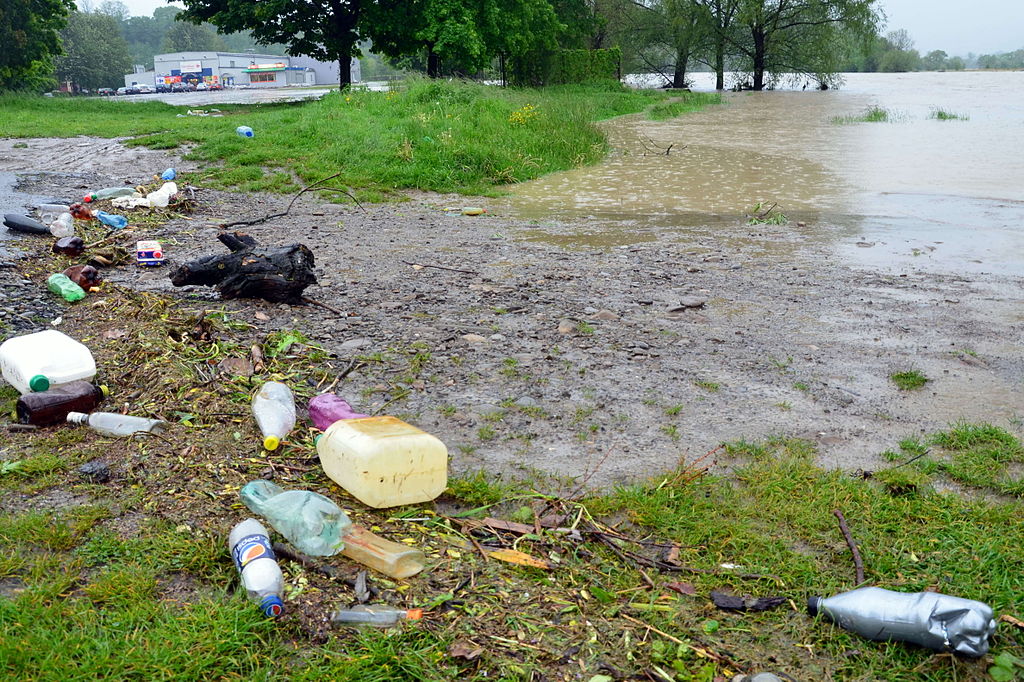Farmers Insurance filed nine class action suits against nearly 200 communities in the Chicago area, saying that local governments should have prepared for rising global temperatures that have led to heavier rains and flooding.
The suits charge that the municipalities did not do enough to fortify their sewers and stormwater drains, causing the insurance company to pay out claims that could have been averted.
While legal observers say the chances of Farmers winning the cases are slim, there may be another motive behind the strategy: insurance companies want to push cities to invest in prevention as a way to avoid future lawsuits.
The Farmers’ cases raise the question of how city governments should allocate funds in preparation for natural disasters.
Michael Gerrard, director of the Center for Climate Change Law at Columbia Law School in New York, told Reuters that he expects more lawsuits of this type. If disasters happen more frequently, it’s possible that cities would bear more legal responsibility to prepare for them, he indicated.
Related Stories
Smart Buildings | Jul 1, 2024
GSA to invest $80 million on smart building technologies at federal properties
The U.S. General Services Administration (GSA) will invest $80 million from the Inflation Reduction Act (IRA) into smart building technologies within 560 federal buildings. GSA intends to enhance operations through granular controls, expand available reporting with more advanced metering sources, and optimize the operator experience.
Sustainability | Jul 1, 2024
Amazon, JPMorgan Chase among companies collaborating with ILFI to advance carbon verification
Four companies (Amazon, JPMorgan Chase, JLL, and Prologis) are working with the International Living Future Institute to support development of new versions of Zero Carbon Certification.
K-12 Schools | Jul 1, 2024
New guidelines for securing schools and community spaces released by the Door Security and Safety Foundation
The Door Security and Safety Foundation (DSSF), in collaboration with Door and Hardware Institute (DHI), recently released of “Are Your Door Openings Secure?.” The document provides guidelines to equip school administrators, building management personnel, and community leaders with a clear roadmap to create a secure and safe environment.
Codes and Standards | Jun 27, 2024
Berkeley, Calif., voters will decide whether to tax large buildings with gas hookups
After a court struck down a first-in-the-nation ban on gas hookups in new buildings last year, voters in Berkeley, Calif., will have their say in November on a measure to tax large buildings that use natural gas.
Sustainability | Jun 24, 2024
CBRE to use Climate X platform to help clients calculate climate-related risks
CBRE will use risk analysis platform Climate X to provide climate risk data to commercial renters and property owners. The agreement will help clients calculate climate-related risks and return on investments for retrofits or acquisitions that can boost resiliency.
MFPRO+ News | Jun 24, 2024
‘Yes in God’s Backyard’ movement could create more affordable housing
The so-called “Yes in God’s Backyard” (YIGBY) movement, where houses of worship convert their properties to housing, could help alleviate the serious housing crisis affecting many communities around the country.
Codes | Jun 17, 2024
To avoid lawsuits, contractors and designers need to do more than comply with codes
Climate change is making design and construction more challenging and increasing the potential for lawsuits against building teams, according to insurance experts. Building to code is not enough to reduce liability because codes have not kept up with the rapid climate changes that are making extreme weather more common.
Concrete Technology | Jun 17, 2024
MIT researchers are working on a way to use concrete as an electric battery
Researchers at MIT have developed a concrete mixture that can store electrical energy. The researchers say the mixture of water, cement, and carbon black could be used for building foundations and street paving.
Codes and Standards | Jun 17, 2024
Federal government releases national definition of a zero emissions building
The U.S. Department of Energy has released a new national definition of a zero emissions building. The definition is intended to provide industry guidance to support new and existing commercial and residential buildings to move towards zero emissions across the entire building sector, DOE says.
Green | Jun 11, 2024
Tool helps construction and renovation projects with CalGreen compliance
One Click LCA recently launched a new software tool to help building teams comply with Part 11, Title 24, of the California Code of Regulations—CALGreen. The regulation is the nation’s first state-mandated green building code to include embodied carbon emission control as a mandatory component, effective from July 1, 2024.

















